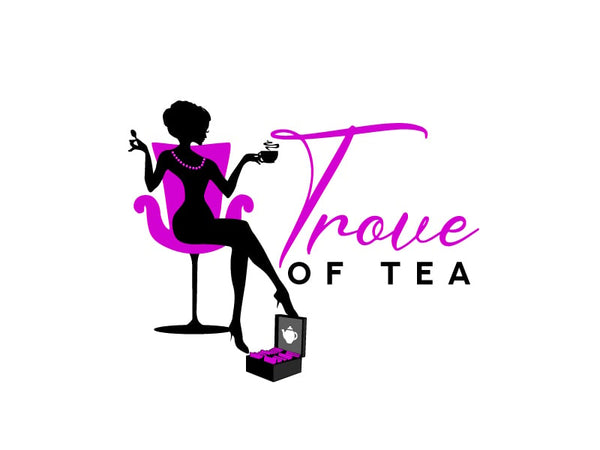
The Strength of Deborah: Meditating on Leadership While Enjoying Tea
Trove of Tea ShopShare
Deborah stands out in the Old Testament as a powerful leader, judge, prophet, and warrior. Her story is one of boldness, wisdom, and unwavering faith. As both a leader and a woman of God, Deborah’s legacy speaks directly to modern women who are navigating leadership roles, whether in their careers, families, or communities. Her story reminds us that true leadership isn’t about position or power—it’s about having the courage to follow God’s calling and the wisdom to lead with integrity and strength.
To accompany your reflection on Deborah’s strength and leadership, we recommend sipping a cup of Bombay Chai Black Tea. The bold spices and rich flavors of this tea evoke a sense of warmth and strength, perfect for meditating on the qualities of leadership that Deborah embodied and how they relate to the challenges women face today.
Deborah’s Role as Judge and Leader: Boldness in Action
Deborah’s introduction in the Book of Judges is nothing short of remarkable. At a time when Israel was struggling under the oppression of Canaanite rule, Deborah rose to prominence as both a prophet and a judge. She led with wisdom and decisiveness, making her one of the few women in the Bible recognized as a national leader.
Judges 4:4-5 (NIV) introduces her: "Now Deborah, a prophet, the wife of Lappidoth, was leading Israel at that time. She held court under the Palm of Deborah between Ramah and Bethel in the hill country of Ephraim, and the Israelites went up to her to have their disputes decided."
This passage illustrates her dual roles as both a spiritual and judicial leader. In today’s world, many women find themselves in similar dual roles, balancing family responsibilities with professional careers or community leadership. The lesson we take from Deborah is that leadership requires both courage and the ability to balance multiple responsibilities. Her confidence in God’s calling allowed her to lead Israel in times of turmoil without hesitation.
For modern women, Deborah’s leadership teaches us that we don’t have to conform to traditional leadership stereotypes. We can lead with wisdom, compassion, and faith, knowing that God equips us with the tools we need to succeed in whatever role He has placed us.
As you sip your Bombay Chai Black Tea, reflect on the roles you lead in your own life. Whether it’s in your workplace, home, or community, how can you step into your leadership role with boldness, trusting that God has equipped you for the task?
The Importance of Wisdom in Leadership: Deborah’s Faith in God’s Plan
One of the most remarkable things about Deborah’s leadership is her reliance on God’s wisdom. She didn’t lead based on her own strength or desires—she sought and followed God’s direction. This is most evident in her role as a prophet, where she was responsible for relaying God’s messages to the people.
In Judges 4:6-7 (NIV), Deborah speaks a prophetic word to Barak, the military commander, telling him: "The Lord, the God of Israel, commands you: ‘Go, take with you ten thousand men of Naphtali and Zebulun and lead them up to Mount Tabor. I will lead Sisera, the commander of Jabin’s army, with his chariots and his troops to the Kishon River and give him into your hands.’”
This moment demonstrates Deborah’s faith and trust in God’s plan. She didn’t shy away from delivering difficult messages or from guiding Barak to fulfill his role in God’s strategy for victory. Deborah’s strength wasn’t just in her leadership—it was in her wisdom to follow God’s lead and trust in His timing.
For modern women in leadership, whether in business, community roles, or within the family, Deborah’s story reminds us to lean on God for guidance. Leadership can often feel lonely or overwhelming, especially when we’re faced with difficult decisions. But Deborah shows us that we don’t have to navigate these moments alone. By seeking God’s wisdom through prayer and reflection, we can lead with confidence and grace, knowing that we are following His path.
As you drink your tea, take a moment to meditate on the areas of your life where you need God’s guidance. Are there decisions you need wisdom for? How can you rely more on His direction in your leadership roles?
Courage in the Face of Adversity: Deborah’s Call to Action
Deborah’s leadership wasn’t just about wisdom and guidance; it was also about courage. When Barak hesitated to go into battle without her, Deborah didn’t waver. She boldly went with him, knowing that God had already promised victory.
Judges 4:8-9 (NIV) reveals Barak’s reluctance: “Barak said to her, ‘If you go with me, I will go; but if you don’t go with me, I won’t go.’ ‘Certainly I will go with you,’ said Deborah. ‘But because of the course you are taking, the honor will not be yours, for the Lord will deliver Sisera into the hands of a woman.’”
Deborah’s courage in this moment is profound. She didn’t hesitate to step into a traditionally male-dominated role and lead alongside Barak into battle. Her confidence came not from herself but from her trust in God’s promise. This act of courage is a powerful example for modern women who often find themselves in situations where they are called to step into roles of influence and leadership, even in spaces where they might feel unqualified or uncertain.
Today, many women face adversity in their careers, personal lives, or leadership roles. Whether it’s gender bias in the workplace, balancing the demands of motherhood and a career, or overcoming personal doubts, Deborah’s story reminds us that courage is essential in leadership. Courage doesn’t mean the absence of fear—it means acting in faith, even when the outcome isn’t fully clear.
As you sip your tea, reflect on where you need courage in your life. What challenges are you facing that require boldness? How can you trust God’s promise of victory, even in the face of uncertainty?
Collaborative Leadership: Working Together for God’s Purpose
Deborah’s leadership also highlights the importance of collaboration. Although she was a strong and decisive leader, she didn’t attempt to accomplish God’s plan on her own. She partnered with Barak, encouraging him to lead the military forces, while she provided spiritual and prophetic guidance.
This partnership shows that leadership is not about doing everything ourselves—it’s about empowering others and working together toward a common goal. Deborah’s humility in collaborating with Barak allowed God’s plan to unfold perfectly. Her role was significant, but she didn’t seek personal glory. Instead, she worked alongside others to achieve what God had set in motion.
For modern women, Deborah’s example teaches us the value of collaboration in leadership. Whether we’re leading teams at work, organizing community projects, or managing a household, leadership often involves empowering others and working together. Strong leaders recognize the importance of teamwork and understand that success comes from supporting those around us, rather than trying to take on everything ourselves.
As you enjoy your tea, think about the people in your life or work that you can collaborate with. How can you encourage and empower those around you to help achieve shared goals? What role does humility play in your leadership?
The Legacy of Deborah: Leadership Grounded in Faith
Deborah’s legacy as a leader is grounded in her faith. She wasn’t defined by her title or position but by her trust in God and her willingness to follow His lead. Her story reminds us that true leadership is not about seeking personal power but about being faithful to God’s calling and serving others with integrity.
In today’s fast-paced world, where leadership is often associated with success, power, or status, Deborah’s example is a refreshing reminder that the best leaders are those who lead with humility, faith, and courage. Her strength came from her faith in God’s promises, her wisdom came from seeking God’s guidance, and her courage came from knowing that the battle belonged to the Lord.
For modern women, Deborah’s legacy offers a blueprint for leadership that is grounded in faith. Whether we are leading in our homes, workplaces, or communities, we are called to lead with integrity, trust in God’s plan, and a commitment to serving those around us.
Conclusion: Embracing Deborah’s Legacy in Our Lives
In conclusion, Deborah’s story is one of boldness, faith, wisdom, and collaboration. As we reflect on her legacy, we are reminded that leadership isn’t about titles or power—it’s about the courage to follow God’s calling and the wisdom to lead with integrity. Whether you are managing a household, leading a team at work, or navigating personal challenges, Deborah’s example encourages us to trust in God’s guidance and to lead with strength and humility.
As you finish your Bombay Chai Black Tea, take time to meditate on the qualities of leadership that Deborah displayed. How can you incorporate her strength, wisdom, and faith into your own life? Trust that God has equipped you to lead with courage and purpose, just as He did with Deborah.









